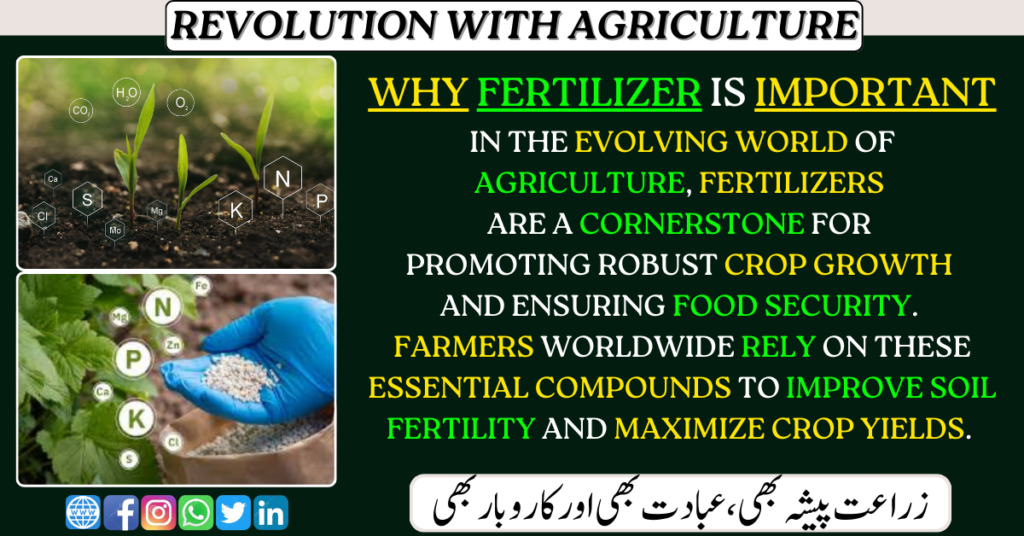Introduction
In the ever-evolving world of agriculture, fertilizers are a cornerstone for fostering robust crop growth and ensuring food security. Farmers worldwide rely on these essential compounds to enrich soil fertility and maximize crop yields. In this blog post, we delve into the intricacies of why fertilizers are used, shedding light on their pivotal role in modern agriculture.

Enhancing Nutrient Levels:
One of the primary reasons why fertilizers are used is to augment nutrient levels in the soil. Plants require a specific balance of essential nutrients, including nitrogen, phosphorus, and potassium, to thrive. Fertilizers provide a targeted and convenient way to supplement these nutrients, promoting optimal plant growth.
Boosting Crop Yield:
Fertilizers play a vital role in boosting crop yields by ensuring that plants receive the nutrients they need in the right quantities. Adequate fertilization fosters stronger roots, healthier plants, and an overall increase in the quantity and quality of the harvest. This becomes particularly crucial as global food demands continue to rise.
Soil Fertility Preservation:
Continuous cultivation can deplete the soil of its natural nutrient content. Fertilizers contribute to soil fertility preservation by replenishing these essential elements, preventing soil degradation, and maintaining an environment conducive to sustained agricultural productivity.
Adaptability to Different Crops:
The versatility of fertilizers allows farmers to cater to the specific needs of different crops. Whether it’s a nitrogen-rich fertilizer for leafy greens or a phosphorus-heavy blend for flowering plants, the ability to customize nutrient profiles ensures optimal growth conditions for a variety of crops.
Efficient Resource Utilization:
Fertilizers facilitate efficient resource utilization by minimizing wastage of water, energy, and other inputs. By providing plants with the necessary nutrients, farmers can achieve better resource efficiency, reducing the environmental impact of agriculture while maximizing output.
Conclusion:
In conclusion, the use of fertilizers in agriculture is indispensable for sustaining global food production. The careful application of these compounds not only enhances soil fertility but also contributes significantly to the overall efficiency and productivity of farming practices.
Frequently Asked Questions:
Why are fertilizers important for crop growth?
Fertilizers are crucial for crop growth as they provide essential nutrients that may be deficient in the soil, promoting healthy plant development and maximizing yields.
How do fertilizers contribute to soil preservation?
Fertilizers contribute to soil preservation by replenishing nutrients depleted through continuous cultivation, preventing soil degradation, and maintaining long-term fertility.
Can fertilizers be harmful to the environment?
While improper use of fertilizers can lead to environmental issues, their careful application can minimize negative impacts, promoting sustainable and eco-friendly agriculture.
Are organic fertilizers better than synthetic ones?
Both organic and synthetic fertilizers have their advantages. Organic fertilizers improve soil structure, while synthetic ones offer precise nutrient control. The choice depends on specific farming goals and practices.
How often should fertilizers be applied to crops?
The frequency of fertilizer application depends on factors like soil type, crop type, and specific nutrient requirements. Regular soil testing and consultation with agricultural experts can help determine an optimal fertilization schedule.